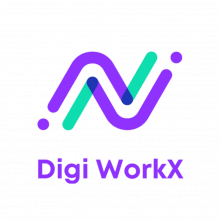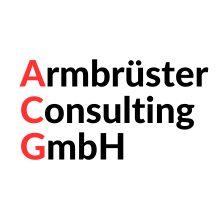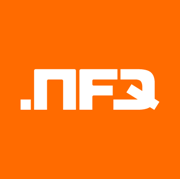Explore Top NodeJS Development Companies in Germany
Use the advanced filter to find companies near you or refine the results Last updated in: January, 2026
Lokal SEO-Optimierung ⭐ SEO-Beratung ⭐ SEO-Analyse ⭐ Onlineshop ⭐ Webentwicklung ⭐E-Learning
Services:
Web & mobile development for your business growth
Genesyx creates AI-powered travel tech to automate bookings, optimize pricing, and deliver seamless customer experiences.
Bring your ideas to life through design and technology
Services:
🚀 Accelerating Tech Venture Building 🚀 | We fuel Corporates & Startups to success with skin in the game.
Utilizing cutting-edge IT technologies our data-centric company empowers businesses with efficient tools customized to their needs.

Frankfurt am Main, Germany Head office in: Poland
Infopulse, part of Tietoevry, is an international vendor of end-to-end digital services and solutions since 1991.
Mit Leidenschaft für durchdachtes Webdesign unterstützen wir Unternehmen und Mittelständler dabei, ihre Online-Präsenz zu optimieren
Services:
Armbruster Consulting GmbH from Rastede - your reliable IT partner for smart solutions, clear strategies, and digital efficiency.
Fullservice Werbeagentur in Bremen, 12 Kreative, Webdesign, Logoentwicklung, Marketing Beratung, Digital + Print seit 1991
Services:
Empowers businesses with cutting-edge IT, AI development, and digital marketing solutions.
Innovative web & mobile app development, specializing in eHealth and cybersecurity, expanding across Europe with over 40 clinic partnerships.
Services:
CompleteSoft is your trusted software development partner. Our expertise and your ideas meet to deliver outstanding products that people love to use.
Software development with a quality mindset We are DJANGSTERS. We make IT projects fun, not scary!
Singula Team wants you to feel like you're working with your own in-house team.
Helping companies build the right digital solutions and products with the right people 🚀
Concept Studio is a full-service design agency itching to leave our mark on the digital world!
Services:
A premier provider of tailored digital solutions, offering innovative app development services that cater to diverse industries worldwide.
Wir sind eine deutsche App Entwicklungsagentur aus Oldenburg, welche sich auf die Flutter-Entwicklung von Apps und progressiven Web-Apps spezialisiert
Casainnov is a leading AI development agency based in Berlin, Germany. We specialize in creating AI solutions tailored to your unique business needs.
Filter NodeJS Development Companies in Germany by Cities
Find the right tech company near you or from a specific city. Some of the best companies might be located in smaller cities.
Find more NodeJS Development companies around the world
TechBehemoths is the world's most advanced and user-friendly platform to match IT Companies with real clients without hustle.
The German ICT Industry: Data, Companies and Predictions
Germany is home to the single largest IT market in Europe, accounting for around a quarter of the European market by value. Innovation comes as standard in an industry characterized by a thriving of small and medium-sized enterprises. Increased business demand for smart data products and services in the cloud is driving domestic IT market growth, as Germany embarks on a far-reaching program of digitalization that promises to transform the economy.
According to Payscale, the average salary of a web developer in Germany is estimated at around 3,500 EUR/mo - one of the highest in Europe, which defines the high demand on the market for digital services and products, but it also reveals the high-quality services companies based in Germany provide. According to Statista, the IT industry market in Germany is predicted to reach $75.48 billion by 2025, with IT Outsourcing dominating this market, reaching $32.15 billion. It has a CAGR for 2025-2030 of 3.33%, expecting a market volume of $88.94 billion by 2030. Germany is a leader in IT services, prioritizing innovation, and delivers high quality services.
Why Should You Work With German IT Companies?
Needless to say that the presence of tech giants in Germany, and their continuous investment in the local IT environment, is one of the basic indicators of a healthy IT industry. But, most importantly, the fundamentals of the IT industry in Germany are small and medium businesses that face tough competition, which in turn stimulates the growth and development of the entire IT ecosystem. Based on a report from the International Trade Administration, in 2025, the number of IT companies in Germany was above 100K, and Berlin only the most developed digital hub, was the home of 38K+ IT companies.
However, the main reasons for working with German IT companies remain a good business culture, rich experience, and skilled professionals.
What You Should Be Aware of When Working With a German IT Company
Despite the benefits of working with German companies, there are several factors that you should be aware of. First of all, the huge number of companies creates difficulties when choosing only one. It is possible to experience psychological fatigue due to the wide variety of good offers you may receive from German or German-based agencies. Despite these challenges, hiring a IT service provider from Germany can bring lower costs than other people expect, talented tech professionals, good education system, stable business ecosystem, productive tech experts, and attention to details.
Speaking of the differences between German and German-based IT companies, this is another challenge to make the difference in which type of company you contacted. There is a performance difference between the two types of companies mentioned above, but not always in favor of the first one.
Are German Companies Reliable?
German IT companies have probably the best reputation in Europe, especially due to the high number of projects they attract, but also based on the country’s business reputation in general. Even though more foreign companies from countries with questionable reputations relocated or declared themselves as German, the overall rating didn’t go down, but on the contrary. This may be explained by the fact that foreign companies would rather adapt to German rules and improve their reputation as well.
How the German IT Industry Relates to the Neighboring Countries
Having ¼ of the European market value, the German IT industry is considered to be the most developed, with the UK and France in second and third position, far behind it. In 2025, Germany holds approximately 19.7% of the market share, followed by the UK at 16.2% and France at 12%. Both countries have robust tech environments that dominates the European continent, with Germany that leads in high-tech industries, and the UK as a prominent tech economy.
What is NodeJS and what are its benefits for your projects?
Node Js is a JavaScript runtime environment that allows developers to run JavaScript code on the server-side. Unlike traditional server-side technologies like PHP or Ruby, which are typically used for handling server tasks, Node.js enables developers to use JavaScript for both client-side and server-side development. Below we’ll dive deeper into the types of projects built with it, and how companies can leverage it for their projects:
Node.js is built on the V8 JavaScript engine from Google, making it incredibly fast and efficient. It uses an event-driven, non-blocking I/O model, which makes it ideal for building scalable and real-time applications. Node.js is particularly well-suited for projects that require high concurrency, such as web applications, APIs, chat applications, streaming services, and more. It has a large and active community, which has led to a rich ecosystem of libraries and packages available via npm (Node Package Manager), simplifying development tasks.
As for the type of projects that can be built using Node.js, we can name the following:
- Web Applications: Many web applications are built using Node.js, often using web frameworks like Express.js. These applications can range from small personal websites to large-scale, enterprise-level platforms.
- APIs (Application Programming Interfaces): Node.js is commonly used to create RESTful APIs that allow different services or applications to communicate with each other. This is essential for building services that provide data to mobile apps, websites, and other clients.
- Real-time Applications: Node.js is favored for real-time applications, such as chat applications, online gaming, and collaborative tools. The event-driven architecture of Node.js is well-suited for handling multiple concurrent connections.
- Streaming Services: Media streaming platforms and services that deliver audio and video content use Node.js to efficiently manage and serve media files to users.
- IoT (Internet of Things): Node.js is used in IoT projects to handle data collection from sensors and devices, process that data, and communicate with cloud services.
- Serverless Functions: Node.js is a popular choice for building serverless functions or AWS Lambda functions due to its lightweight and quick startup times.
Node.js is a versatile technology that can be effectively utilized in both smaller and larger projects, but its suitability hinges on several key factors.
For smaller projects, Node.js offers distinct advantages. Its event-driven, non-blocking I/O model allows developers to rapidly prototype and develop applications. This makes it an excellent choice for creating functional prototypes, minimum viable products (MVPs), or simple web tools swiftly.
Node.js's efficiency in handling I/O operations can lead to responsive user experiences, which is valuable for small-scale applications like personal websites, blogs, or straightforward web tools. Moreover, Node.js itself is lightweight, making it suitable for projects with minimal hardware or resource requirements. It doesn't impose significant overhead, making it a cost-effective option.
Node.js is also well-suited for serving as a backend for Single-Page Applications (SPAs), handling API requests, and serving static files efficiently. Its ability to use JavaScript both on the server and client sides can reduce development costs by enabling code reuse and a single development skill set.
For larger projects, Node.js remains a compelling choice for various reasons. Its ability to handle a large number of concurrent connections positions it favorably for projects with high traffic and user loads. It's designed to scale efficiently, allowing it to distribute workloads across multiple servers or containers, making it scalable and robust.
In larger applications with complex functionality, Node.js can be employed to build microservices that communicate efficiently with each other. This modular approach enhances maintainability and facilitates development on a larger scale.
Node.js's event-driven nature also makes it an ideal candidate for larger projects requiring real-time features. It excels in managing multiple simultaneous connections, making it suitable for applications such as messaging platforms, online gaming, or collaborative tools.
Additionally, Node.js continues to offer development speed advantages regardless of project size, which can be particularly valuable in meeting tight project deadlines.
Furthermore, for larger projects with JavaScript as the primary language on both the frontend and backend, Node.js facilitates streamlined development processes, code sharing, and collaboration among teams working on different parts of the application.






















